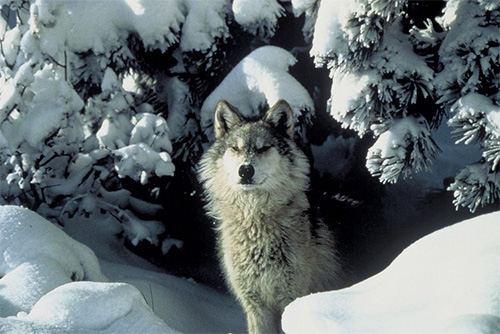
Alaska Seeks to Intervene in Lawsuit Challenging Congressional Review Act
June 01, 2017
“The elimination of the improper hunting restrictions allows the State to continue managing wildlife for all Alaskans,” said Department of Fish and Game Commissioner Sam Cotten. “We understand the importance of wildlife to our state and our focus is on maintaining populations into the future.”
Quoting a news release for the Alaska Department of Law, the State supports use of the Congressional Review Act, and had urged the Alaska delegation to take action under the law to revoke the regulations. This law allows Congress with approval from the President to repeal regulations adopted within 60 legislative days (which could be as long as 6 months) of the previous administration, and this is the first time it has been used to address a regulation intended to impact a single state. “We are pleased that our congressional delegation made it a priority to reverse these unnecessary hunting restrictions affecting 80 million acres in Alaska,” said Attorney General Jahna Lindemuth. “The rules adopted by the last administration clearly infringed on Alaska’s sovereign right to manage the harvest of fish and game in Alaska.” The State filed a separate lawsuit challenging the regulations in January, along with a challenge to similar regulations adopted by the National Park Service. The State filed an amended complaint in that lawsuit yesterday, and is now waiting for a response from the federal government. The Center for Biological Diversity sued the Trump administration on April 20, 2017 over the constitutionality of the Congressional Review Act about a month after President Donald Trump overturned limits on how certain animals can be killed in national wildlife refuges in Alaska. In the first constitutional challenge of its kind, the Center for Biological Diversity sued the Trump administration on April 20, 2017 for repealing protections for wolves, bears and other wildlife on Alaska’s national wildlife refuges. President Trump signed legislation on April 3 — rushed through Congress under the Congressional Review Act — that the Center for Biological Diversity said repealed an Obama administration rule that prohibited killing wolves and their pups in their dens, gunning down bears at bait stations and shooting them from airplanes. Under the legislation signed by Trump, all of these practices can now be allowed, according to the CBD. April’s lawsuit, filed in U.S. District Court in Anchorage, challenges the constitutionality of the Congressional Review Act, a 1996 law allowing legislators to repeal federal regulations adopted in the last few months of the previous presidential administration. Before 2017 Congress successfully used it just once, in 2001, but Trump and the current Congress have now used it to revoke 13 different Obama-era regulations. “Wolf cubs shouldn’t be slaughtered in their dens on the very wildlife refuges that are meant to protect biological diversity,” said Collette Adkins, a Center attorney and biologist. “It’s outrageous that Trump and congressional Republicans used this unconstitutional law to promote the senseless slaughter of some of Alaska’s most iconic wildlife. They clearly don’t care about the critical role these amazing animals play in healthy ecosystems.” The suit says that the Congressional Review Act violates the U.S. Constitution’s separation of powers doctrine by preventing the U.S. Fish and Wildlife Service from future rulemaking that is “substantially the same” as the disapproved rule. By constraining the agency without changing its governing laws through the procedures mandated by the Constitution, the Act unconstitutionally expands Congress’s power at the expense of the executive branch. “The Congressional Review Act throws the balance of power out of whack and opens the door for politicians in Congress to meddle in decisions that ought to be made by experts at federal agencies,” Adkins said. “By law the Fish and Wildlife Service must protect biological diversity on Alaskan wildlife refuges. But the Act makes it more difficult for agency officials to carry out their legal duty to protect wolves and bears.” Quoting a CBC news release, in August 2016 the U.S. Fish and Wildlife Service finalized regulations that protected wolves and bears from new predator-control tactics approved by Alaska’s Board of Game. These tactics include killing wolf mothers and pups during denning season; killing brown bears over bait; trapping and killing black bears with steel-jaw leg-hold traps or wire snares; and killing brown and black bears from aircraft. According to the Center for Biological Diversity, Alaska’s predator-control activities are intended to artificially inflate prey populations, such as moose and caribou, for hunters. House and Senate Republicans used the Congressional Review Act to repeal the predator-protection rule on a highly partisan vote. The Center for Biological Diversity also said predator-protection regulations in national parks and national refuges are also under attack from the state of Alaska, which is challenging those regulations in federal court. The Center and its allies have intervened on behalf of the Interior Department to defend the challenged regulations. The Center is represented in April’s lawsuit by Center staff attorneys along with attorneys from the law firm of Lane Powell.
On the Web:
Reporting & Editing by Mary Kauffman, SitNews
Source of News:
Representations of fact and opinions in comments posted are solely those of the individual posters and do not represent the opinions of Sitnews.
|
|||
